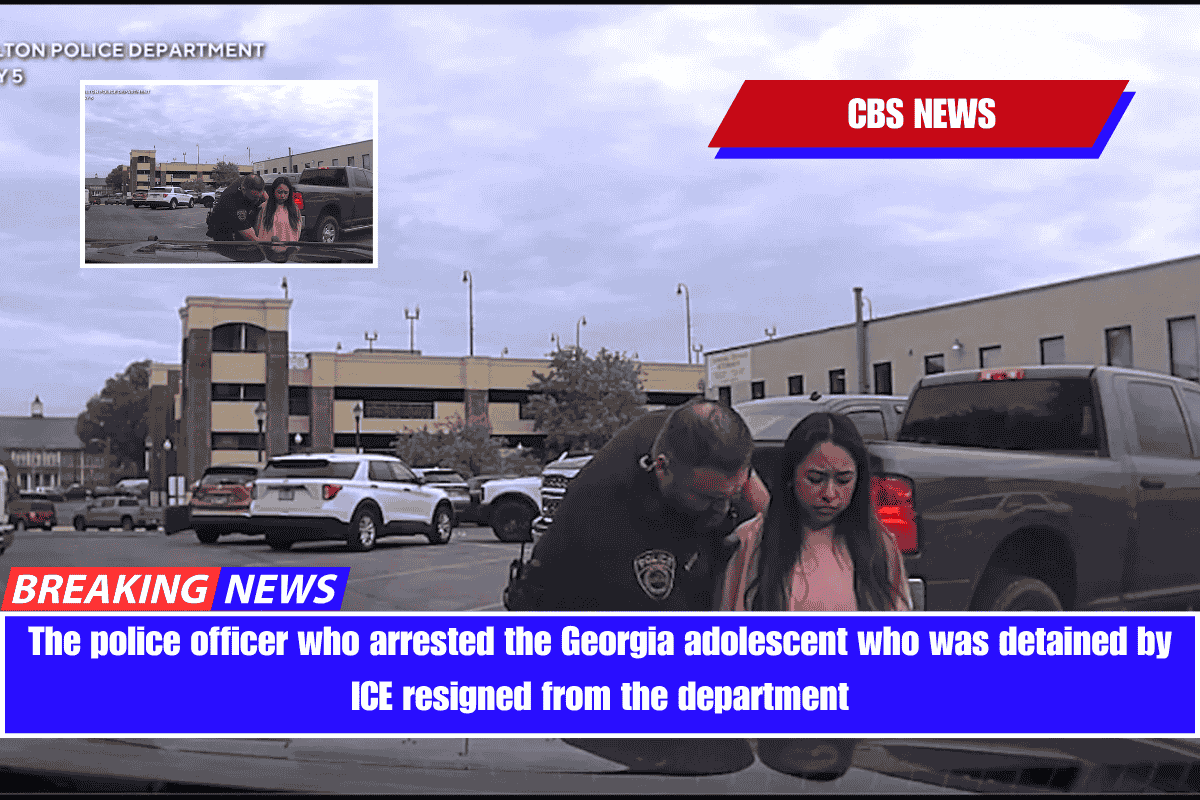Washington — The Supreme Court said Friday that it will continue to prevent the Trump administration from deporting Venezuelan men detained in northern Texas while they pursue a challenge to their removals under the wartime Alien Enemy Act.
The Supreme Court’s order grants an emergency injunction sought by lawyers for a group of Venezuelan migrants who said they faced “imminent” removal under President Trump’s March proclamation invoking the Alien Enemies Act of 1798. It upholds the Supreme Court’s earlier directive from last month, which temporarily barred the government from removing Venezuelan migrants held at the Bluebonnet Detention Facility in Anson, Texas, under the 18th-century law. Some migrants deported under the law have been sent to a prison in El Salvador.
The Supreme Court’s April order, issued overnight, halted deportations “until further order of this court.”
Shortly after the ruling Friday, Mr. Trump posted on Truth Social: “THE SUPREME COURT WON’T ALLOW US TO GET CRIMINALS OUT OF OUR COUNTRY!”
Lee Gelernt, lead counsel in the ACLU’s lawsuit against the administration over the deportations, said in a statement: “The court’s decision to stay removals is a powerful rebuke to the government’s attempt to rush people away to a Gulag-style prison in El Salvador.”
Friday’s order was unsigned, and Samuel Alito and Clarence Thomas dissented.
The order stated that the Fifth Circuit Court of Appeals erred in dismissing the detainees’ appeal for lack of jurisdiction, vacating the judgment and remanding the case to the court for further proceedings.
The high court also ruled that the plaintiffs in the case did not have enough notice to challenge their deportations under the Alien Enemies Act in court, citing the Trump administration’s stated plan earlier in the case to deport them within a day. However, the justices did not specify the type of notice that possible deportees should receive, and they directed the Fifth Circuit to address that issue.
“To be clear, we decide today only that the detainees are entitled to more notice than was given on April 18,” the judge’s ruling stated.
The Supreme Court did not address whether the Trump administration has the legal authority to deport Venezuelans under the Alien Enemies Act, but did say lower courts should handle cases involving the law “expeditiously.” It also stated that the government may use “other lawful authorities” other than wartime law to remove the plaintiffs.
“We recognize the importance of the government’s national security interests and the need for them to be pursued in accordance with the Constitution. In light of the foregoing, lower courts should expedite AEA cases,” the court stated.
Justice Brett Kavanaugh agreed with the decision, but argued that the Supreme Court should have addressed the underlying issues immediately rather than returning it to lower courts. He cited conflicting rulings on whether the government can use the Alien Enemies Act and how much notice must be given to detainees, including a Pennsylvania ruling earlier this week that became the first to rule that Mr. Trump can use the 1798 statute.
“The circumstances call for a prompt and final resolution, which likely can be provided only by this Court,” Kavanaugh said. “At this juncture, I would prefer not to remand to the lower courts and further put off this Court’s final resolution of the critical legal issues.”
In his dissent, Alito argued that the high court lacked jurisdiction to grant relief and should have allowed lower courts to address the issue first. Thomas joined the dissent.
The emergency appeal to the Supreme Court came amid a fast-moving dispute that erupted after the American Civil Liberties Union revealed last month that Venezuelan migrants being held at the Anson facility had received notices informing them that they were subject to removal under the Alien Enemies Act. According to the ACLU, the notices identified the migrants as members of the Venezuelan gang Tren de Aragua who needed to be removed from the United States, and the men were told they could be deported within hours.
Lawyers for the Venezuelan migrants claimed that the Trump administration’s actions violated the Supreme Court’s early April decision in a separate case involving removals under the Alien Enemy Act. In that ruling, the high court stated that migrants subject to removal under the 1798 law must be notified of their impending deportation “within a reasonable time” and be allowed to file habeas corpus claims to challenge their removals.
The Supreme Court’s previous decision also stated that judicial relief must be sought in the district where the migrants are held, prompting the ACLU to file petitions in New York, southern Texas, and Colorado on behalf of Venezuelan migrants facing deportation under the Alien Enemies Act. The three judges overseeing those cases agreed to temporarily prohibit the Trump administration from using wartime authority to deport migrants in custody in their districts.
On May 1, a judge in southern Texas permanently blocked the Trump administration from using the Alien Enemies Act to deport Venezuelan migrants living or detained in the district, determining that the president’s proclamation exceeded the scope of the law and violated its terms.
The ACLU had petitioned U.S. District Judge James Wesley Hendrix of the Northern District of Texas to prevent the “imminent” removal of Venezuelan migrants detained at the Bluebonnet facility in Anson without proper notice. The group claimed that the Trump administration transferred Venezuelan men from detention facilities in Louisiana, Minnesota, and California to Anson “without meaningful explanation.” According to the ACLU, the government had also not indicated what type of notice it intended to provide to those covered by Mr. Trump’s Alien Enemies Act proclamation, or how much time it would give them before deporting them to El Salvador or another country.
But Hendrix declined to grant temporary relief, determining that two Venezuelan men detained in northern Texas and facing deportation under the Alien Enemies Act were not in imminent danger of removal. A second federal judge in Washington, D.C., also declined to intervene in the ACLU’s last-ditch effort to broaden the ban on removals.
After Hendrix declined the temporary restraining order, the ACLU stated in court papers that the government issued notices to detainees in English only, designating them for removal under the Alien Enemies Act. The ACLU also stated that officials told the men they would be removed within 24 hours.
The group then sought relief from both the United States Court of Appeals for the Fifth Circuit and the Supreme Court.
The ACLU argued that the government’s actions do not provide Venezuelan migrants in northern Texas who are at risk of removal under the Alien Enemies Act with a “realistic opportunity” to seek judicial relief, and warned that without intervention, dozens or hundreds of Venezuelan men risked being deported to a notorious prison in El Salvador, where they would have no chance to contest their designation as a “alien enemy” or their removal.
“The public has a critical interest in preventing wrongful removals, especially where it could mean a lifetime sentence in a notorious foreign prison,” the researchers said.
However, the Trump administration argued that the ACLU’s request for an injunction is “unprecedented,” and that it is too early for the Supreme Court to intervene. Solicitor General John Sauer informed the court in a filing that the government had agreed not to use the Alien Enemies Act to remove detainees who had filed habeas petitions.
Trump invokes Alien Enemies Act
The president’s proclamation invoking the Alien Enemies Act, signed last month, has already resulted in significant clashes with federal courts. The 1798 law has only been used three times before, and each time was during a war.
According to Mr. Trump’s proclamation, all Venezuelan nationals aged 14 and older who are members of Tren de Aragua but are not US citizens or legal permanent residents will be apprehended and removed as alien enemies. The president claimed that migrants with alleged gang ties were invading or planning an incursion into the United States.
Shortly after the proclamation was signed in mid-March, the administration used the Alien Enemies Act to deport over 100 Venezuelans to El Salvador, where they are detained at the Terrorism Confinement Center, or CECOT.
Mr. Trump’s efforts to deport Venezuelan migrants using the authority sparked a legal battle in Washington, D.C. U.S. District Judge James Boasberg, who was overseeing the case, found probable cause to hold the Trump administration in criminal contempt for allegedly violating an order involving the removal of Venezuelan migrants to El Salvador.
The case that resulted in that extraordinary order came before the Supreme Court in late March. The Supreme Court split 5-4 in ruling that Mr. Trump could carry out deportations under the Alien Enemies Act, but unanimously agreed that judicial review must be available to those subject to removal under the law.


















Leave a Reply